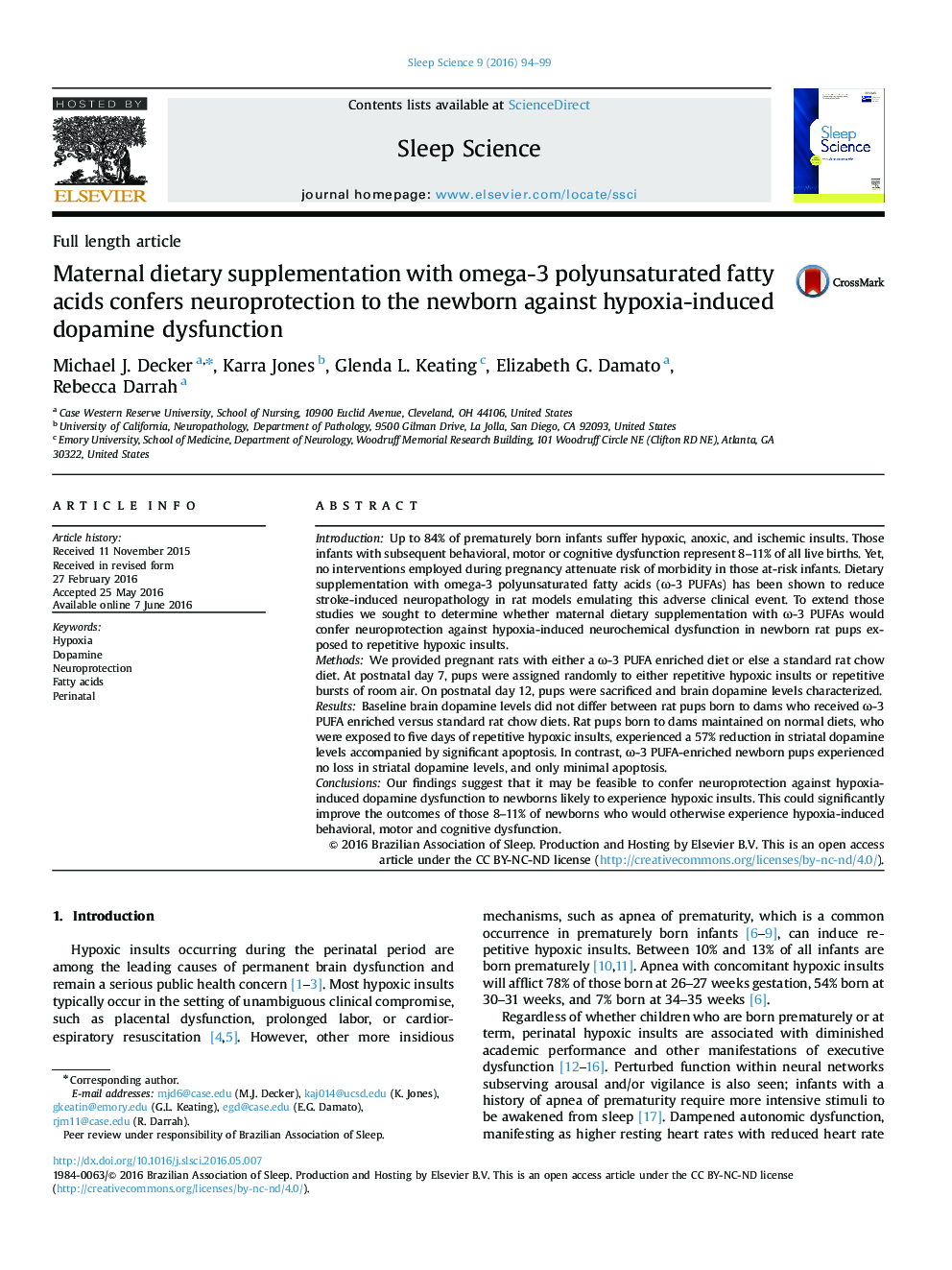| Article ID | Journal | Published Year | Pages | File Type |
|---|---|---|---|---|
| 3026588 | Sleep Science | 2016 | 6 Pages |
IntroductionUp to 84% of prematurely born infants suffer hypoxic, anoxic, and ischemic insults. Those infants with subsequent behavioral, motor or cognitive dysfunction represent 8–11% of all live births. Yet, no interventions employed during pregnancy attenuate risk of morbidity in those at-risk infants. Dietary supplementation with omega-3 polyunsaturated fatty acids (ω-3 PUFAs) has been shown to reduce stroke-induced neuropathology in rat models emulating this adverse clinical event. To extend those studies we sought to determine whether maternal dietary supplementation with ω-3 PUFAs would confer neuroprotection against hypoxia-induced neurochemical dysfunction in newborn rat pups exposed to repetitive hypoxic insults.MethodsWe provided pregnant rats with either a ω-3 PUFA enriched diet or else a standard rat chow diet. At postnatal day 7, pups were assigned randomly to either repetitive hypoxic insults or repetitive bursts of room air. On postnatal day 12, pups were sacrificed and brain dopamine levels characterized.ResultsBaseline brain dopamine levels did not differ between rat pups born to dams who received ω-3 PUFA enriched versus standard rat chow diets. Rat pups born to dams maintained on normal diets, who were exposed to five days of repetitive hypoxic insults, experienced a 57% reduction in striatal dopamine levels accompanied by significant apoptosis. In contrast, ω-3 PUFA-enriched newborn pups experienced no loss in striatal dopamine levels, and only minimal apoptosis.ConclusionsOur findings suggest that it may be feasible to confer neuroprotection against hypoxia-induced dopamine dysfunction to newborns likely to experience hypoxic insults. This could significantly improve the outcomes of those 8–11% of newborns who would otherwise experience hypoxia-induced behavioral, motor and cognitive dysfunction.
